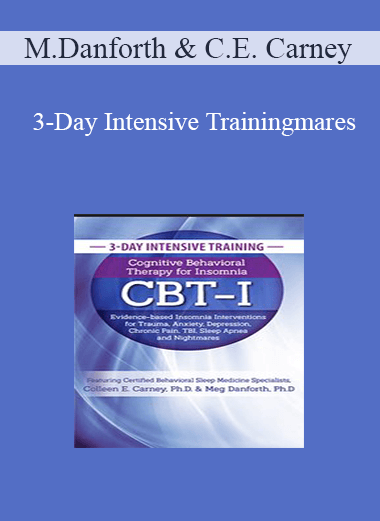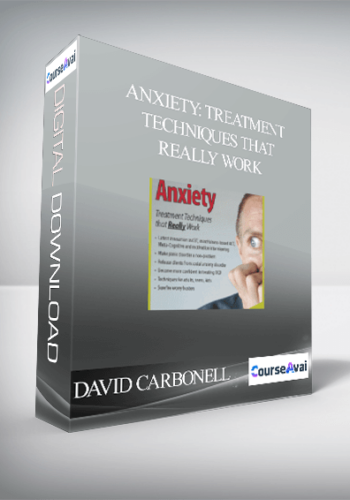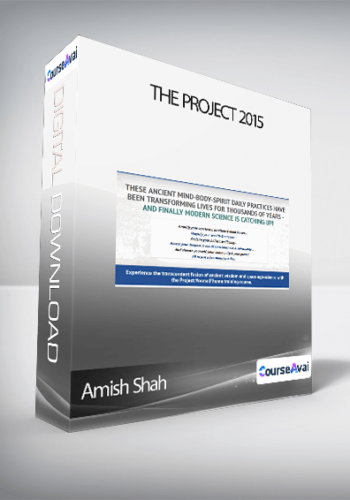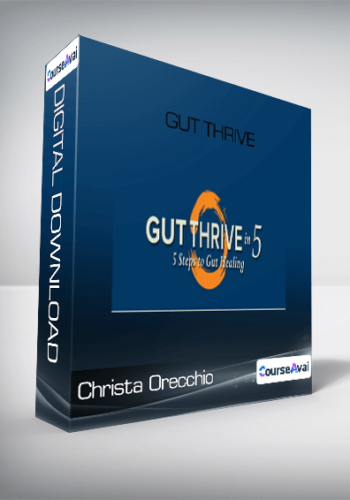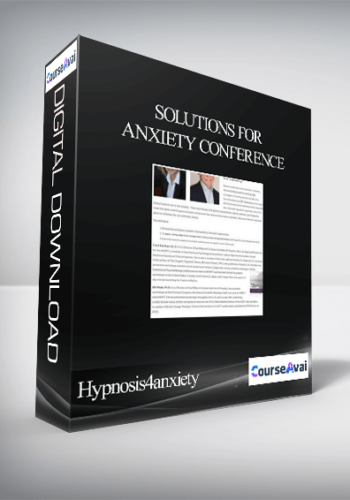Meg Danforth, Colleen E. Carney – 3-Day Intensive Training: Cognitive Behavioral Therapy for Insomnia (CBT-I): Evidence-based Insomnia Interventions for Trauma, Anxiety, Depression, Chronic Pain, TBI, Sleep Apnea and Nightmares
Original price was: $599.99.$101.70Current price is: $101.70.
[Instant Download] – Immediately deliver the download link after receiving the payment
Description
Unlock your potential with the Unlock your potential with the Meg Danforth, Colleen E. Carney – 3-Day Intensive Training: Cognitive Behavioral Therapy for Insomnia (CBT-I): Evidence-based Insomnia Interventions for Trauma, Anxiety, Depression, Chronic Pain, TBI, Sleep Apnea and NightmaresMeg Danforth, Colleen E. Carney – 3-Day Intensive Training: Cognitive Behavioral Therapy for Insomnia (CBT-I): Evidence-based Insomnia Interventions for Trauma, Anxiety, Depression, Chronic Pain, TBI, Sleep Apnea and Nightmares course for only course for only Original price was: $599.99.Original price was: $599.99.$$101.70101.70Current price is: $101.70.Current price is: $101.70. at at Giolib.comGiolib.com! Explore our comprehensive library of over 60,000 downloadable digital courses across various ! Explore our comprehensive library of over 60,000 downloadable digital courses across various Medical & HealthMedical & Health. Get expert-led, self-paced learning at up to 80% savings. Elevate your skills today!. Get expert-led, self-paced learning at up to 80% savings. Elevate your skills today!
- Faculty:Faculty:
- Meg Danforth | Colleen E. CarneyMeg Danforth | Colleen E. Carney
- Duration:Duration:
- 18 Hours 54 Minutes18 Hours 54 Minutes
- Format:Format:
- Audio and VideoAudio and Video
- Copyright:Copyright:
- Mar 14, 2018Mar 14, 2018
Description
Outline
- DAY 1: Assessment and the Basics of CBT-I
DAY 1: Assessment and the Basics of CBT-I
- Assessment
Assessment
- Goals of assessmentGoals of assessment
- Clinical tools for assessing insomniaClinical tools for assessing insomnia
- Screen for other sleep disordersScreen for other sleep disorders
- When to make a referral to a sleep clinicWhen to make a referral to a sleep clinic
- Contraindications for CBT-IContraindications for CBT-I
- Sleep and its Regulation
Sleep and its Regulation
- Normal sleep architectureNormal sleep architecture
- Two-process model of sleep: Circadian rhythm and sleep driveTwo-process model of sleep: Circadian rhythm and sleep drive
- The arousal systemThe arousal system
- What causes chronic insomnia?What causes chronic insomnia?
- Key perpetuating factors for chronic insomnia
Key perpetuating factors for chronic insomnia
- Behaviors that interfere with “buildup” of sleep driveBehaviors that interfere with “buildup” of sleep drive
- Behaviors that interfere with the optimal timing of sleepBehaviors that interfere with the optimal timing of sleep
- Conditioned arousal and physiological/ cognitive hyperarousalConditioned arousal and physiological/ cognitive hyperarousal
- Perpetuating factors and CBT-IPerpetuating factors and CBT-I
- Step-by-Step Guide to CBT-I: Stimulus Control and Sleep Restriction Therapies
Step-by-Step Guide to CBT-I: Stimulus Control and Sleep Restriction Therapies
- Stimulus Control (SC): Addressing conditioned arousal
Stimulus Control (SC): Addressing conditioned arousal
- Rules for re-associating the bed with sleepRules for re-associating the bed with sleep
- Identify and overcome potential obstacles to adherenceIdentify and overcome potential obstacles to adherence
- Sleep Restriction Therapy (SRT): Restoring the sleep drive
Sleep Restriction Therapy (SRT): Restoring the sleep drive
- How to present rationaleHow to present rationale
- Calculate time-in-bed prescriptionCalculate time-in-bed prescription
- Placing the time-in-bed windowPlacing the time-in-bed window
- Identify and overcome potential obstacles to adherenceIdentify and overcome potential obstacles to adherence
- Sleep extensionSleep extension
- Combining SC and SRTCombining SC and SRT
- The myth of sleep hygieneThe myth of sleep hygiene
- Stimulus Control (SC): Addressing conditioned arousal
Stimulus Control (SC): Addressing conditioned arousal
- Step-by-Step Guide to CBT-I: Cognitive Therapy and Counter-arousal
Step-by-Step Guide to CBT-I: Cognitive Therapy and Counter-arousal
- Counter-arousal strategies: Quieting an active mind
Counter-arousal strategies: Quieting an active mind
- Establishing a buffer zoneEstablishing a buffer zone
- Processing strategies (including constructive worry and rumination strategies)Processing strategies (including constructive worry and rumination strategies)
- Mindfulness and relaxation therapiesMindfulness and relaxation therapies
- Cognitive therapy: Identify and change distorted thoughts about sleep
Cognitive therapy: Identify and change distorted thoughts about sleep
- Thought RecordsThought Records
- Behavioral ExperimentsBehavioral Experiments
- Socratic QuestioningSocratic Questioning
- Counter-arousal strategies: Quieting an active mind
Counter-arousal strategies: Quieting an active mind
- Implementation Issues
Implementation Issues
- Models of Delivery
Models of Delivery
- Four session individual therapy formatFour session individual therapy format
- Seven session group therapy formatSeven session group therapy format
- Single session CBT-ISingle session CBT-I
- CBT-I and hypnotic medication
CBT-I and hypnotic medication
- Practice guidelines: CBT-I as first line treatment for chronic insomniaPractice guidelines: CBT-I as first line treatment for chronic insomnia
- Combining CBT-I with sleep medication
Combining CBT-I with sleep medication
- Positive and negative effects of sleep medicationsPositive and negative effects of sleep medications
- Use of ineffective sleep medicationsUse of ineffective sleep medications
- Promote non-contingent use of sleep medicationPromote non-contingent use of sleep medication
- Strategies to support hypnotic discontinuationStrategies to support hypnotic discontinuation
- Models of Delivery
Models of Delivery
- Assessment
Assessment
- DAY 2: Delivering CBT-I in the Context of Comorbidities
DAY 2: Delivering CBT-I in the Context of Comorbidities
- Depression
Depression
- CBT-I and MDDCBT-I and MDD
- Troubleshooting adherence in depressed patients
Troubleshooting adherence in depressed patients
- AnhedoniaAnhedonia
- Sleep or bed as avoidanceSleep or bed as avoidance
- Fatigue and fatigue management strategiesFatigue and fatigue management strategies
- Rumination in depressionRumination in depression
- Case examplesCase examples
- Sleep and antidepressantsSleep and antidepressants
- Anxiety
Anxiety
- Sleep effort: Core target of CBT-I
Sleep effort: Core target of CBT-I
- Covert manifestations of sleep effortCovert manifestations of sleep effort
- Cognitive restructuring of sleep anxietyCognitive restructuring of sleep anxiety
- Paradoxical IntentionParadoxical Intention
- Troubleshooting adherence with anxious clients
Troubleshooting adherence with anxious clients
- When SRT/SC increase anxietyWhen SRT/SC increase anxiety
- Counter control and sleep compressionCounter control and sleep compression
- High sleep anxiety vs high arousalHigh sleep anxiety vs high arousal
- Panic Disorder and nocturnal panicPanic Disorder and nocturnal panic
- OCD and CBT-IOCD and CBT-I
- Sleep effort: Core target of CBT-I
Sleep effort: Core target of CBT-I
- Trauma
Trauma
- Sleep and PTSDSleep and PTSD
- CBT-I trials in PTSDCBT-I trials in PTSD
- Behavioral targets in clients with insomnia vs PTSDBehavioral targets in clients with insomnia vs PTSD
- Common treatment challenges in clients with PTSDCommon treatment challenges in clients with PTSD
- Nightmares and nightmare treatmentsNightmares and nightmare treatments
- Traumatic Brain Injury (TBI)
Traumatic Brain Injury (TBI)
- Comorbid TBI
Comorbid TBI
- Sleep and TBISleep and TBI
- Efficacy of CBT-I in mild TBI (mTBI)Efficacy of CBT-I in mild TBI (mTBI)
- Modify insomnia treatment for mTBIModify insomnia treatment for mTBI
- Comorbid TBI
Comorbid TBI
- Chronic Pain
Chronic Pain
- Efficacy of CBT-I for those with chronic painEfficacy of CBT-I for those with chronic pain
- Chronic pain and stimulus controlChronic pain and stimulus control
- Common treatment challenges in clients with chronic painCommon treatment challenges in clients with chronic pain
- Pain medications and other considerationsPain medications and other considerations
- Hypnotic Discontinuation
Hypnotic Discontinuation
- Combined guided hypnotic taper approachCombined guided hypnotic taper approach
- Factors sustaining hypnotic dependence
Factors sustaining hypnotic dependence
- Unhelpful beliefsUnhelpful beliefs
- LearningLearning
- Strategies to support client during hypnotic taper
Strategies to support client during hypnotic taper
- Psychoeducation about psychological dependence and rebound insomniaPsychoeducation about psychological dependence and rebound insomnia
- Cognitive therapy to target unhelpful beliefsCognitive therapy to target unhelpful beliefs
- Sample taper schedulesSample taper schedules
- Depression
Depression
- DAY 3: Co-Occurring Sleep Disorders and Advanced Case Formulation
DAY 3: Co-Occurring Sleep Disorders and Advanced Case Formulation
- Co-Occurring Sleep Apnea
Co-Occurring Sleep Apnea
- Obstructive sleep apnea (OSA)
Obstructive sleep apnea (OSA)
- Morbidity and mortality of OSAMorbidity and mortality of OSA
- Relationship of nocturia and OSARelationship of nocturia and OSA
- Sleep apnea treatmentsSleep apnea treatments
- Obstacles to treatment adherence
Obstacles to treatment adherence
- Physical comfortPhysical comfort
- Mechanical problemsMechanical problems
- Social and other factorsSocial and other factors
- Psychological factorsPsychological factors
- Improve adherence
Improve adherence
- Work with stages of changeWork with stages of change
- Respond to common concernsRespond to common concerns
- CPAP desensitization for claustrophobiaCPAP desensitization for claustrophobia
- Treating insomnia in patients with comorbid OSATreating insomnia in patients with comorbid OSA
- Obstructive sleep apnea (OSA)
Obstructive sleep apnea (OSA)
- Circadian Rhythm Sleep Disorders
Circadian Rhythm Sleep Disorders
- Using light to leverage circadian timekeeperUsing light to leverage circadian timekeeper
- “Exogenous” circadian challenges
“Exogenous” circadian challenges
- Cope with shift workCope with shift work
- Adjust to jet lagAdjust to jet lag
- “Endogenous” circadian disorders: Advanced and delayed sleep phase
“Endogenous” circadian disorders: Advanced and delayed sleep phase
- Phototherapy for delayed sleep phasePhototherapy for delayed sleep phase
- Imagery Rehearsal Therapy for Nightmares
Imagery Rehearsal Therapy for Nightmares
- Nightmares and nightmare disorder
Nightmares and nightmare disorder
- Differential diagnosisDifferential diagnosis
- Assessment
Assessment
- Self-monitoring via nightmare logSelf-monitoring via nightmare log
- Combine nightmare log and sleep diaryCombine nightmare log and sleep diary
- Imagery Rescripting and Rehearsal
Imagery Rescripting and Rehearsal
- Psychoeducation and rationalePsychoeducation and rationale
- Nightmares and traumaNightmares and trauma
- Shaping imagery skillsShaping imagery skills
- IRT stepsIRT steps
- Prazosin for nightmaresPrazosin for nightmares
- Nightmares and nightmare disorder
Nightmares and nightmare disorder
- Advanced Case Formulation in CBT-I
Advanced Case Formulation in CBT-I
- Case conceptualization: Asking the right questionsCase conceptualization: Asking the right questions
- Case Formulation Form
Case Formulation Form
- Factors weakening sleep driveFactors weakening sleep drive
- Factors weakening the clockFactors weakening the clock
- Evidence of hyperarousalEvidence of hyperarousal
- Unhelpful sleep behaviorsUnhelpful sleep behaviors
- ComorbiditiesComorbidities
- Case ExamplesCase Examples
- Co-Occurring Sleep Apnea
Co-Occurring Sleep Apnea
Faculty
Meg Danforth, Ph.D., CBSM Related seminars and products: 3
Meg Danforth, Ph.D., CBSM,Meg Danforth, Ph.D., CBSM, is a licensed psychologist and certified behavioral sleep medicine specialist who provides advanced clinical care to patients with sleep disorders and comorbid medical and mental health issues. She is a clinician and educator at Duke University Medical Center in Durham, NC. As the Director of the Duke Behavioral Sleep Medicine Clinic, she has been helping people sleep better without medication for the past 15 years. She also provides clinical training and supervision to psychology graduate students, interns, and fellows. Dr. Danforth is committed to teaching clinicians from a variety of backgrounds to deliver CBT-I in the settings in which they practice. Her work has been featured in the Associated Press and CBS News. is a licensed psychologist and certified behavioral sleep medicine specialist who provides advanced clinical care to patients with sleep disorders and comorbid medical and mental health issues. She is a clinician and educator at Duke University Medical Center in Durham, NC. As the Director of the Duke Behavioral Sleep Medicine Clinic, she has been helping people sleep better without medication for the past 15 years. She also provides clinical training and supervision to psychology graduate students, interns, and fellows. Dr. Danforth is committed to teaching clinicians from a variety of backgrounds to deliver CBT-I in the settings in which they practice. Her work has been featured in the Associated Press and CBS News.
Speaker Disclosures:Speaker Disclosures:
Financial:Financial: Margaret Marion Danforth is a clinical associate at Duke University Medical Center. She receives a speaking honorarium from PESI, Inc. Margaret Marion Danforth is a clinical associate at Duke University Medical Center. She receives a speaking honorarium from PESI, Inc.
Non-financial:Non-financial: Margaret Marion Danforth is a member of the Association for Behavioral and Cognitive Therapies. Margaret Marion Danforth is a member of the Association for Behavioral and Cognitive Therapies.
Colleen E. Carney, Ph.D. Related seminars and products: 5
Colleen E. Carney, Ph.D., Colleen E. Carney, Ph.D., is on faculty in the Department of Psychology at Ryerson University, where she is director of the Sleep and Depression Laboratory. She is a leading expert in psychological treatments for insomnia, particularly in the context of co-occurring mental health issues. Her work has been featured in is on faculty in the Department of Psychology at Ryerson University, where she is director of the Sleep and Depression Laboratory. She is a leading expert in psychological treatments for insomnia, particularly in the context of co-occurring mental health issues. Her work has been featured in The New York Times The New York Times and she has over 100 publications on insomnia.and she has over 100 publications on insomnia.
She frequently trains students and mental health providers in CBT for Insomnia at invited workshops throughout North America and at international conferences. Dr. Carney is a passionate advocate for improving the availability of treatment for those with insomnia and other health problems. For more information, please visit www.drcolleencarney.com.She frequently trains students and mental health providers in CBT for Insomnia at invited workshops throughout North America and at international conferences. Dr. Carney is a passionate advocate for improving the availability of treatment for those with insomnia and other health problems. For more information, please visit www.drcolleencarney.com.
Speaker Disclosure:Speaker Disclosure:
Financial: Colleen Carney is a professor at Ryerson University. She receives a speaking honorarium from PESI, Inc.Financial: Colleen Carney is a professor at Ryerson University. She receives a speaking honorarium from PESI, Inc.
Non-financial: Colleen Carney is a member of the Canadian Psychological Association; and the Association for Behavioural and Cognitive Therapies (ABCT).Non-financial: Colleen Carney is a member of the Canadian Psychological Association; and the Association for Behavioural and Cognitive Therapies (ABCT).
Future-proof your knowledge with the Future-proof your knowledge with the Meg Danforth, Colleen E. Carney – 3-Day Intensive Training: Cognitive Behavioral Therapy for Insomnia (CBT-I): Evidence-based Insomnia Interventions for Trauma, Anxiety, Depression, Chronic Pain, TBI, Sleep Apnea and NightmaresMeg Danforth, Colleen E. Carney – 3-Day Intensive Training: Cognitive Behavioral Therapy for Insomnia (CBT-I): Evidence-based Insomnia Interventions for Trauma, Anxiety, Depression, Chronic Pain, TBI, Sleep Apnea and Nightmares course at course at GiOlibGiOlib! Enjoy lifetime access to high-quality digital content, crafted to advance your career and personal development.! Enjoy lifetime access to high-quality digital content, crafted to advance your career and personal development.
- Lifetime Access:Lifetime Access: Permanent access to all purchased courses. Permanent access to all purchased courses.
- Smart Savings:Smart Savings: Benefit from prices up to 80% off original course costs. Benefit from prices up to 80% off original course costs.
- Safe Transactions:Safe Transactions: Process your payments securely. Process your payments securely.
- Practical Insights:Practical Insights: Gain actionable skills relevant to today's demands. Gain actionable skills relevant to today's demands.
- Instant Availability:Instant Availability: Begin your course immediately after payment. Begin your course immediately after payment.
- Flexible Learning:Flexible Learning: Access content effortlessly on any device. Access content effortlessly on any device.
Start expanding your horizons with Start expanding your horizons with GiOlibGiOlib!!
